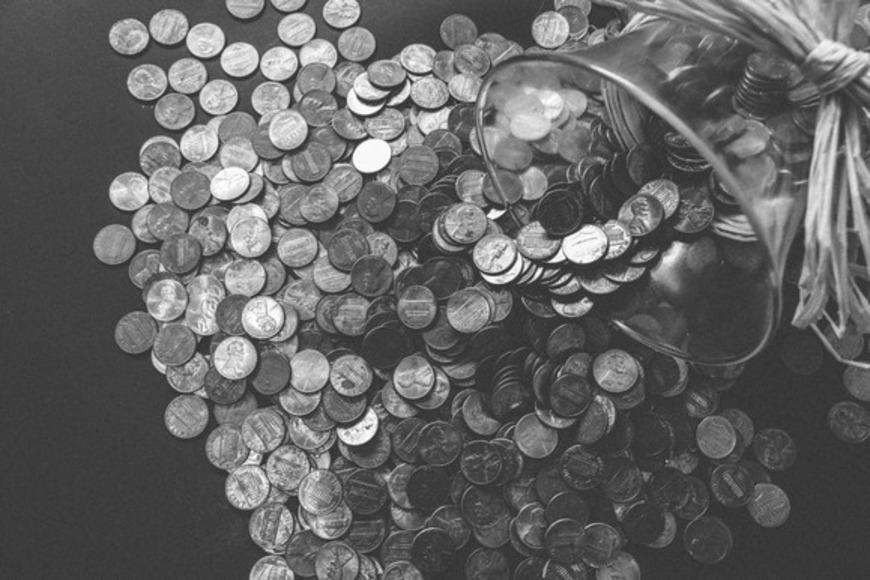
It's Black Friday, and unfortunately that means that more than one person is likely to be seriously injured or even killed in the name of value today. Whether it's an elderly person being tackled and beaten by store security, a woman pulling a gun in a store lineup when threatened with cutting in line, shoppers hazing each other with pepper spray, store employees being trampled to death by a stampede of frenzied shoppers, or a pair of testosterone-crazed deal seekers shooting each other to death in a toy store, you can be sure that a new crop of violent acts committed by consumers will be etched into the annals of the Darwin Awards before the end of the day. If the examples above seem excessive, it's because they are. But they all happened.
How did things get to be this bad?
My brain goes into a fog just thinking about it. I mean, sure, people do crazy things that they normally wouldn't when under the influence of very abnormal group behaviour. On the other hand, thinking far enough ahead to bring your trusty handgun on your shopping trip to Toys R Us probably means there's something fundamentally different about your reality than mine. Especially when you're not the only one in a kids store carrying around a means with which to murder dozens of people.
It would be easy to point one giant finger at Capitalism here. We like to blame easy targets, after all. Why'd you do that, Capitalism? Bad Capitalism. Bad!
But that's a little like blaming gravity after a fall. Sure, gravity is technically the ultimate reason you hit the ground, but it's too distant of an explanation to have any immediate or practical value. It's interesting, and classical Newtonian mechanics does a great job of explaining and quantifying it, but I still don't know what to do differently next time to avoid falling again.
Evolutionary psychology is in the same boat, if you'll permit a brief tangential thought. Evolutionary psychologists concern themselves with ultimate explanations. Why are so many people overweight, compared to previous generations? Is it the increasing preponderance of inexpensive high-fat, high-calorie foods? Are we getting lazier? Getting less exercise? Nope - an evolutionary psychologist would say that it's because our ancestors were more likely to survive (and thereby reproduce) through long winters or droughts if they had a gene mutation that allowed them to store extra calories in their bodies as fat. Those without the "fat gene" were less likely to survive, and over time we evolved to really like the taste of fatty, sugary foods. Fascinating, makes sense, but doesn't really help in the here and now, does it?
All that to say that yes, while capitalism is technically responsible for the bizarre kind of ultra-value-seeking behaviour we see on Black Friday, it's not a helpful explanation. In fact, it's a pretty big cop out, like complaining about something without acknowledging all they ways it makes your life better.
When I hear stories about people literally slaughtering each other over a new toy, or trampling a total stranger to save some money on a new HDTV, the first thing that I think about is not consumer value, but moral values. The drivers of our behaviour, whether we acknowledge them or not. When we act according to our values, they are the basis on which we make our decisions. When our actions and values conflict, we tend to experience cognitive dissonance and negative emotional reactions like guilt, shame, and anger.
In a situation where somebody shoots another person because of a dispute over a children's toy, there is an obvious mix-up of values happening. Perversions of values like pride and family might eclipse the value of basic human life, let alone kindness and understanding. Autonomy, independence, and freedom - hallmarks of American culture - are embraced without giving thought to the corresponding values of responsibility and community, and freedom without responsibility quickly devolves into chaos and anarchy (as the saying goes, "freedom costs a buck 'o five").
Hey - I like a good deal as much as the next guy. I go out of my way to ultimately only spend a couple dollars less on gas. I get excited when my bill at Safeway drops by 30% or more after scanning my club card. I even regularly get suckered into those grocery store psychology tricks that get you to "buy two for $5" even though I only wanted one, which would cost $2.50. But perhaps most tellingly, I always eat at least one hot dog when I go to Ikea - not because I enjoy them, but because they're such an amazing deal. When's the last time you paid 60 cents for anything?
But if I ever harmed (never mind killed) another person in the name of consumer value, I think I would have to commit myself for psychiatric evaluation.
And Here's Where I Make the "grand link to career advice."
Because values are so central to our decision making, and to our fundamental understanding of our own identity, it's essential to know just what those values are. Career decision making is certainly no exception to this, nor is career identity. Trust me, I work with students and recent graduates very regularly who struggle to identify their values. They lack language to describe what's important to them in their career and life.
Without knowing what's important, on what basis do you have to make a career related decision?
That's almost as foolish as going shopping on Black Friday without your bullet proof vest on.
Beyond the Blog
- Visit the Career and Work Services to explore career opportunities!

















